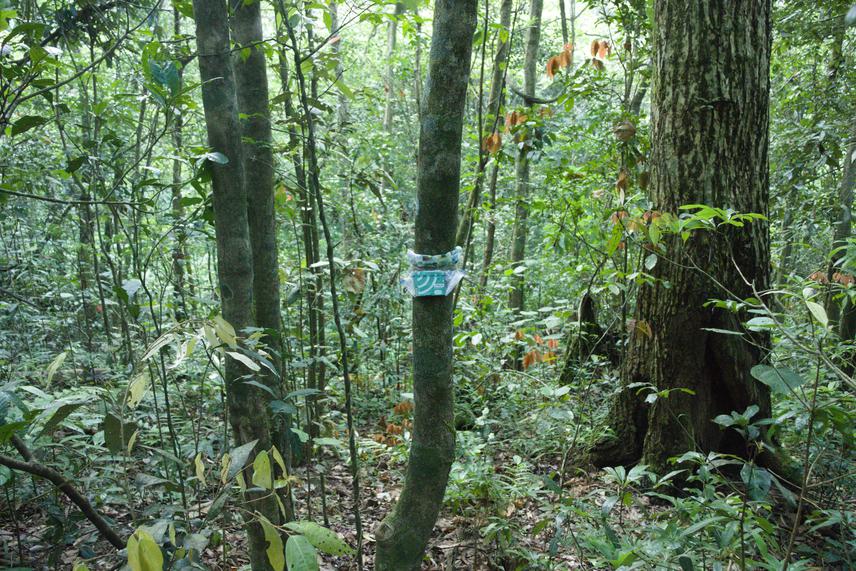Article featuring the project on Mongabay website.
Vijay Ramesh
The emerging technology of acoustics is opening a new window into conserving biodiversity across human-modified landscapes. Low-cost and time-efficient acoustic technology offers novel possibilities for conservationists to identify where and when diversity is under threat. In this study, I will use non-invasive audio recorders across the Anamalai hill range of the Western Ghats biodiversity hotspot to evaluate forest restoration efforts. This study has two aims: 1. To understand how vocalizing biodiversity varies along a gradient of forest regeneration and; 2. Stimulate curiosity and appreciation for biodiversity among the Indian and international public through the window of sounds.

A view of a recorder setup in a protected area forest site
Reviving and protecting deforested and degraded land is the need of the hour. To tackle this problem, the United Nations and the International Union for Conservation of Nature proposed the Bonn Challenge, a global effort to restore 350 million hectares of degraded land by 2030. In this regard, forest restoration efforts across the Indian subcontinent have been undertaken as a Nationally Determined Contribution under the Paris Agreement. Specifically, rainforest fragments across the Valparai plateau of the Anamalai hill range (of the Western Ghats) have been actively restored since the early 2000s by the Nature Conservation Foundation, in partnership with coffee and tea estates and state forest department officials (https://www.ncf-india.org/western-ghats/reviving-the-rainforest). However, the effectiveness of such restoration efforts in increasing levels of biodiversity remains to be evaluated.
An emerging field, soundscape ecology, entails characterizing acoustics across spatial and temporal scales. As an unbiased passive monitoring tool, an acoustic recorder captures a wide range of frequencies that provides information about the biotic and abiotic conditions at a given location. Soundscape ecology is a unique approach to study the landscape, as we rely entirely on acoustic data to calculate measures of vocalizing biodiversity, thereby avoiding the need for detailed and expensive biodiversity inventories. Technologies such as satellite imaging can track geospatial changes to land cover, but seldom provide us a complete picture of the biodiversity that a landscape holds. However, what if we were to rely on sounds to monitor biodiversity in this human-modified landscape?
The overarching goal of this study is to utilize an innovative technology to understand changes to understudied biodiversity along a gradient of forest regeneration. Using acoustic data, we will calculate measures of vocalizing biodiversity such as species richness and species diversity across a gradient of forest regeneration in the Valparai landscape.
Finally, we will communicate the results of this study and its significance to a regional and global audience. We will disseminate this information via an interactive website (www.projectdhvani.org). Further, this study aims to provide an immersive and compelling experience to a local audience by showcasing sounds of amphibians, birds and insects from these sites at the EcoQuest Nature Discovery Center in Valparai. This centre was initiated as a conservation education program that targets diverse sections of the population including schools and colleges, estate workers, plantation managers, forest department officials, visitors and the public in general.
Project Updates
29 Jul 2020
28 Jul 2021
Social media videos and article featuring the project.
Sounds of the Wild | Andrew Lewis & Project Dhvani
Soundscapes- A language of Nature
Project Dhvani: Forest soundscapes from the Western Ghats by Vijay Ramesh
Mongabay - Listen closely: using bioacoustics in wildlife conservation